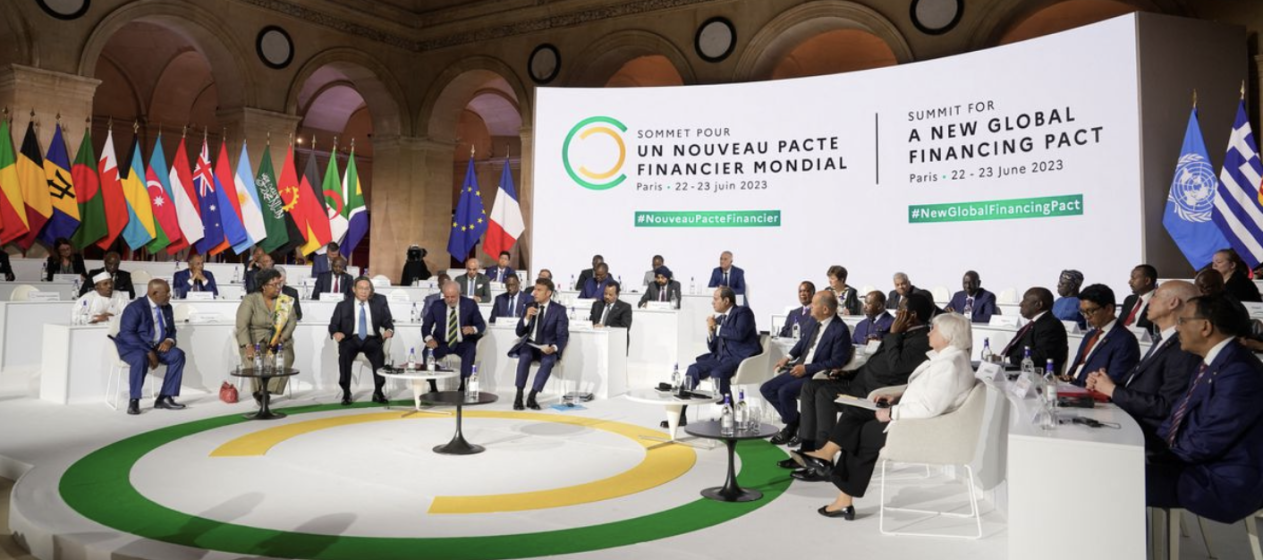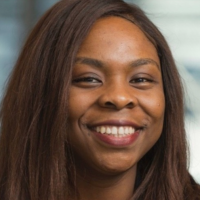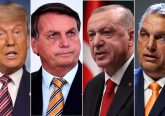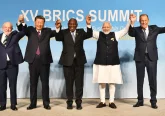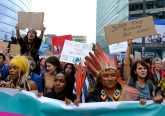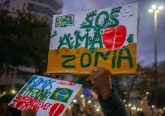International summits are vital to promoting global agreement and laying the groundwork for future international cooperation. The Summit for a New Global Financial Pact took place in Paris, co-hosted by France’s President Emmanuel Macron and Barbados’ Prime Minister Mia Mottley. The Summit, organised with the aim of promoting global unity for international financial architecture form, set out to achieve four main goals focusing on fiscal sustainability and climate change in low-income countries.
Amid the worldwide increase in extreme poverty and climate disasters, these conferences provide a platform for building coalitions to resolve urgent humanitarian issues. However, there has been a marked decline in international cooperation and the success of these events. In 2022, the United Nations Climate Change Conference COP27 had to be extended as talks remained gridlocked. In spite of the unprecedented agreement of a Loss and Damage Fund for vulnerable countries impacted by climate disasters, progress has remained limited and countries have yet to decide how the new funding programme will be implemented.
As a result, these summits have begun to lose appeal for countries in the Global South who feel that their needs are not being prioritised within the international system. The unequal distribution of resources, opportunities, and power was made glaringly evident by the International Monetary Fund’s (IMF) disproportionate allocation of Special Drawing Rights (SDRs). SDRs are an international reserve asset created by the IMF to supplement the existing official reserves of its members. The allocation of SDRs to member countries is determined according to their quota, meaning that low-income countries and emerging markets tend to receive less. Germany, for example, receives more (6%) than the entire African continent (5%).
Going into the Summit, several African ministers called for system reform, requesting more equitable ties with bilateral partners and multilateral institutions. Kenya’s President William Ruto, for example, asked for reform of the global financial architecture to enable developing countries to participate on a more equal footing in the international geoeconomics system.
Happenings At The Summit
Prime Minister Mia Mottley kicked off the Summit by emphasising the need for a radical transformative approach, rather than mere reform of the global financial system. To this end, she presented the Bridgetown Initiative, which aims to (i) establish a new financial system that prioritises climate action, (ii) achieve the Sustainable Development Goals (SDGs), and (iii) offers debt relief to developing nations.
Mottley’s call for transformation triggered a series of ground-breaking announcements and commitments. The IMF announced the achievement of its goal to provide climate-vulnerable countries with $100 billion in SDRs, a reserve currency. The World Bank unveiled a plan allowing developing nations affected by climate disasters to temporarily halt debt repayments. Senegal and the International Partners Group (IPG) introduced a Just Energy Transition Partnership (JETP), which combines climate and development objectives. Additionally, Zambia successfully negotiated a restructuring of $6.3 billion of its debt.
Despite these commendable efforts, the Summit further highlighted the Global North-South divide. Leaders like Brazil’s Lula da Silva, William Ruto and Mia Mottley repeatedly called for changes to the global system. While their Global North counterparts acknowledged the need for change, they have not taken the necessary measures to create change. President Ruto announced his plan for a new financial system that mitigates the impacts of climate change without being subject to shareholder control, such as the IMF and World Bank. President Macron’s response to this idea, in Ruto’s words, was lukewarm. During a panel about debt, Prime Minister Mottley echoed “the hypocrisy of the moment.”
Events like the Summit which aim to deliver long-term sustainable solutions often fall short. While numerous commitments and promises were made to address climate change and provide debt relief, the implementation of tangible actions and result-oriented solutions remains limited. A recurring theme of the Summit was finding ways to invest sustainably in emerging and developing economies without exacerbating existing debt issues. Over 52 countries are struggling to repay their debts, exacerbated by increasing interest rates and a strong US dollar. Unfortunately, the Summit’s outcomes did not fulfil the expectations of implementing a comprehensive debt forgiveness program. As Walter Mawere, an advocacy coordinator for Care International in Somalia, observed, the Summit fundamentally failed to deliver solutions for those most vulnerable to climate change.
Leaders from the Global South called out their Northern partners for being all talk and no action. South African President Cyril Ramaphosa reminded President Macron, German Chancellor Olaf Scholz, U.S. Treasury Secretary Janet Yellen and the heads of financial institutions that there were several existing commitments which have not been met, including the yet-to-be-delivered $100 billion in annual climate finance by 2020. Expressing his frustration, Ramaphosa saidthat, “Sometimes we’ll sit at conferences like this and [you] say, ‘Yes, we will make this available and that available,’ and we believe you. We believe you, but now … we must now see action”.
Beyond Rhetoric: The Need for Action
Recognising, the Global South is finding new ways to cooperate and exert influence beyond the existing international system. One such avenue is the BRICS (Brazil, Russia, India, China, and South Africa) group, which prioritises South-South Cooperation and allows developing countries to play a more significant role in global governance. As of May 2023, approximately 20 countries have submitted formal and informal applications to join the group. The BRICS group is pushing for an inclusive international order that reforms existing global, geopolitical and financial issues.
As the Global South sets out to reform the global financial system, the idea of a post-Western world moves closer to reality. This would mean moving beyond the current Western-centric international system, and its enduring economic inequalities. In May, President Ruto asked for African leaders to ditch the US dollar to facilitate trade within the continent. Chinese officials and Brazil’s President Lula have made similar calls in their respective regions. Similarly, Malaysia’s Prime Minister Anwar Ibrahim suggested the creation of the Asian Monetary Fund to reduce dollar reliance. As calls for transformative change increase in the Global South, the future of this Western-centric post-Cold War international order is at stake.
There is urgent need for the creation of a collaborative development finance ecosystem that supports all countries. This means prioritising just energy transitions, creating debt sustainability mechanisms, and implementing measures to support climate change mitigation and adaptation. While there is global agreement that change is necessary, events like the Summit emphasise that the implementation of reforms presents many challenges. Following the Paris Summit, France published a roadmap of planned actions until mid-2024, including a reconvening within the next two years and establishing a commitment monitoring mechanism. The objective measure of success (or lack thereof) will be whether the action points outlined in the roadmap are achieved ahead of the next proposed meeting. If the action points are achieved, the Summit could represent a significant milestone for both climate action and economies in the Global South.

